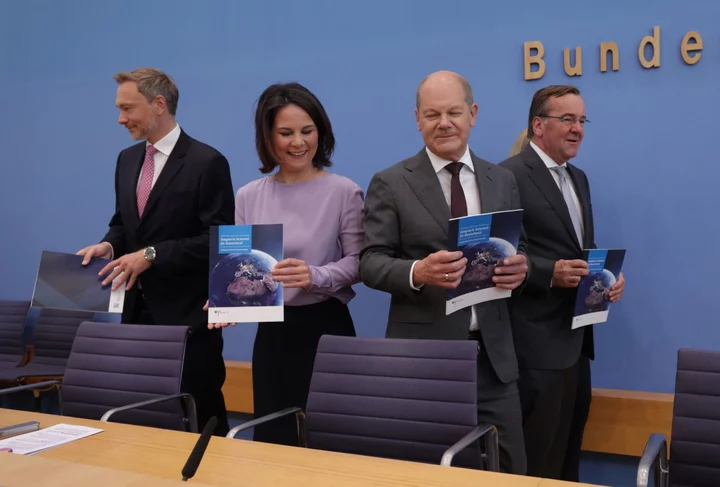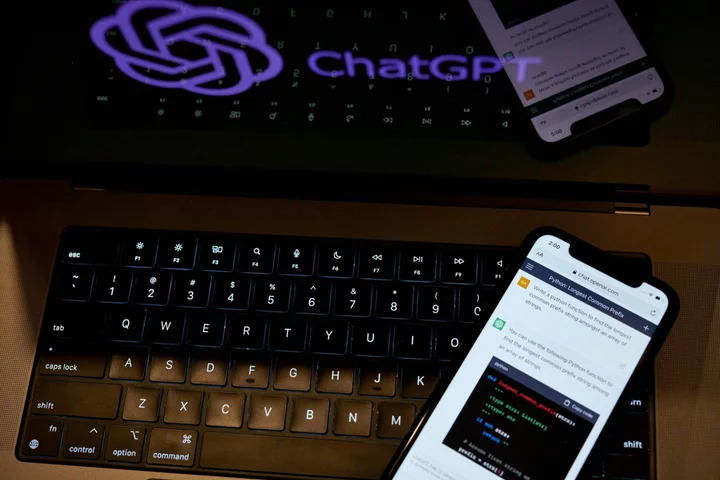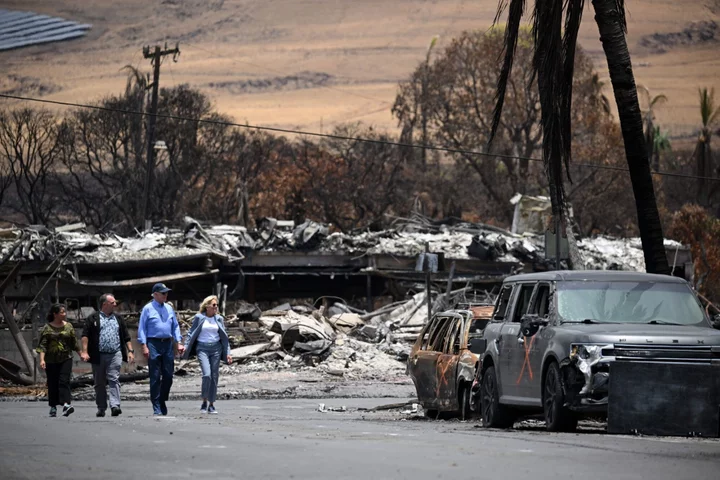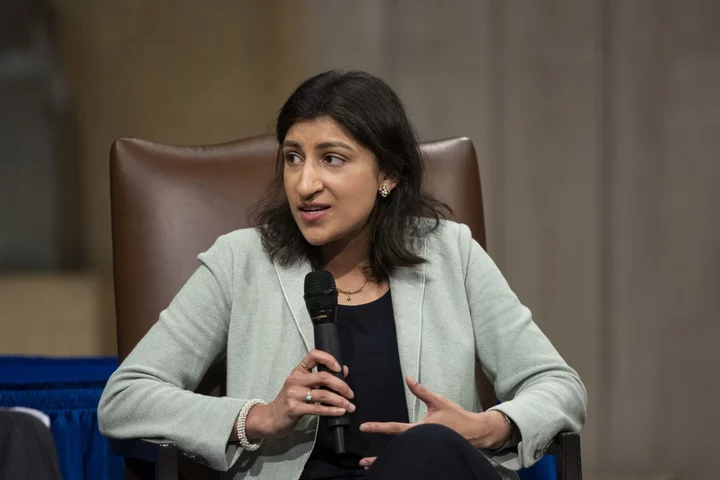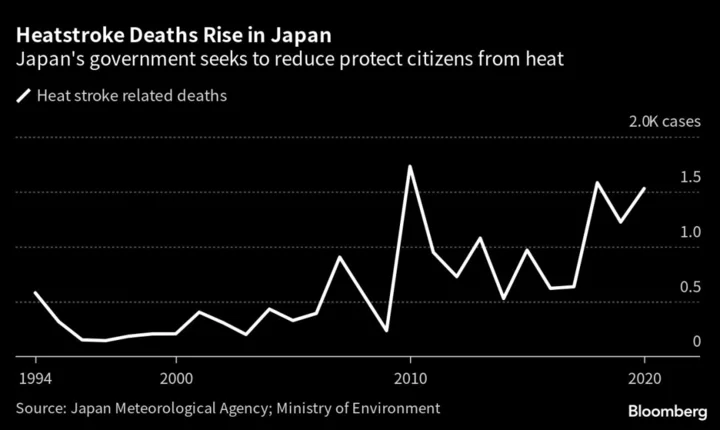Chancellor Olaf Scholz’s cabinet approved Germany’s inaugural national-security strategy, which is expected to single out Russia as the key threat to Europe’s biggest economy.
Details of the strategy have mostly been kept under wraps ahead of a news conference at 11 a.m. in Berlin, where Scholz and senior ministers, including Foreign Minister Annalena Baerbock and Finance Minister Christian Lindner, are due to present it to the media.
It’s likely to put some flesh on the bones of policies Scholz has referred to in recent speeches, designed to respond to a dramatic shift in priorities sparked by Russia’s full-scale invasion of Ukraine.
As well as ways of addressing what Scholz calls a geopolitical Zeitenwende — or historic turning point — triggered by the war, Germany’s relationship with China in light of the government in Beijing’s increasing assertiveness will also feature.
The three members of Scholz’s alliance — his center-left Social Democrats, the environmentalist Greens and the pro-business Free Democrats — have been wrangling over the security strategy for months and opposition lawmakers have accused the government of putting party politics ahead of the country’s needs and lacking focus.
“Germany is not pursuing a strategic approach because we have no idea of who we actually want to be in this conflict-ridden world,” Norbert Roettgen, a foreign policy expert for the main opposition Christian Democrats, said Tuesday in a series of tweets.
“As a result, there will continue to be a leadership vacuum in Europe,” he added. “Because without a clear German course, Europe cannot find and consolidate its role in the world either.”
Nils Schmid, foreign policy spokesman for Scholz’s SPD, said that the new security strategy provides a “substantial basis” to anchor Germany’s foreign-policy goals and principles and called the agreement among the three coalition partners “an enormous success.”
“Russia’s war of aggression and autocratic tendencies in other parts of the world mean that we have to project ourselves outwards more robustly,” Schmid said Tuesday.
--With assistance from Chris Reiter.

